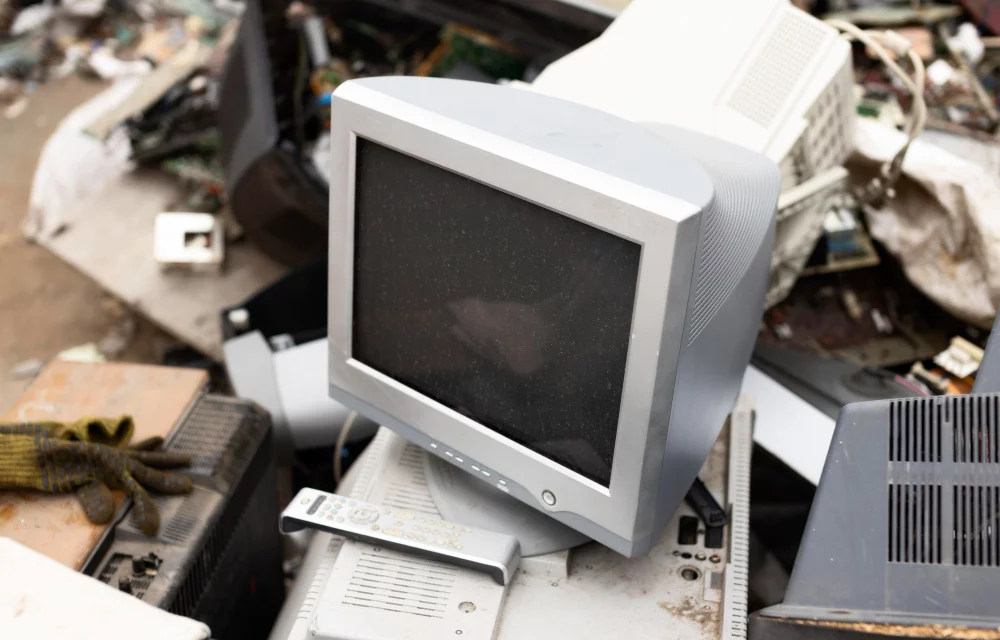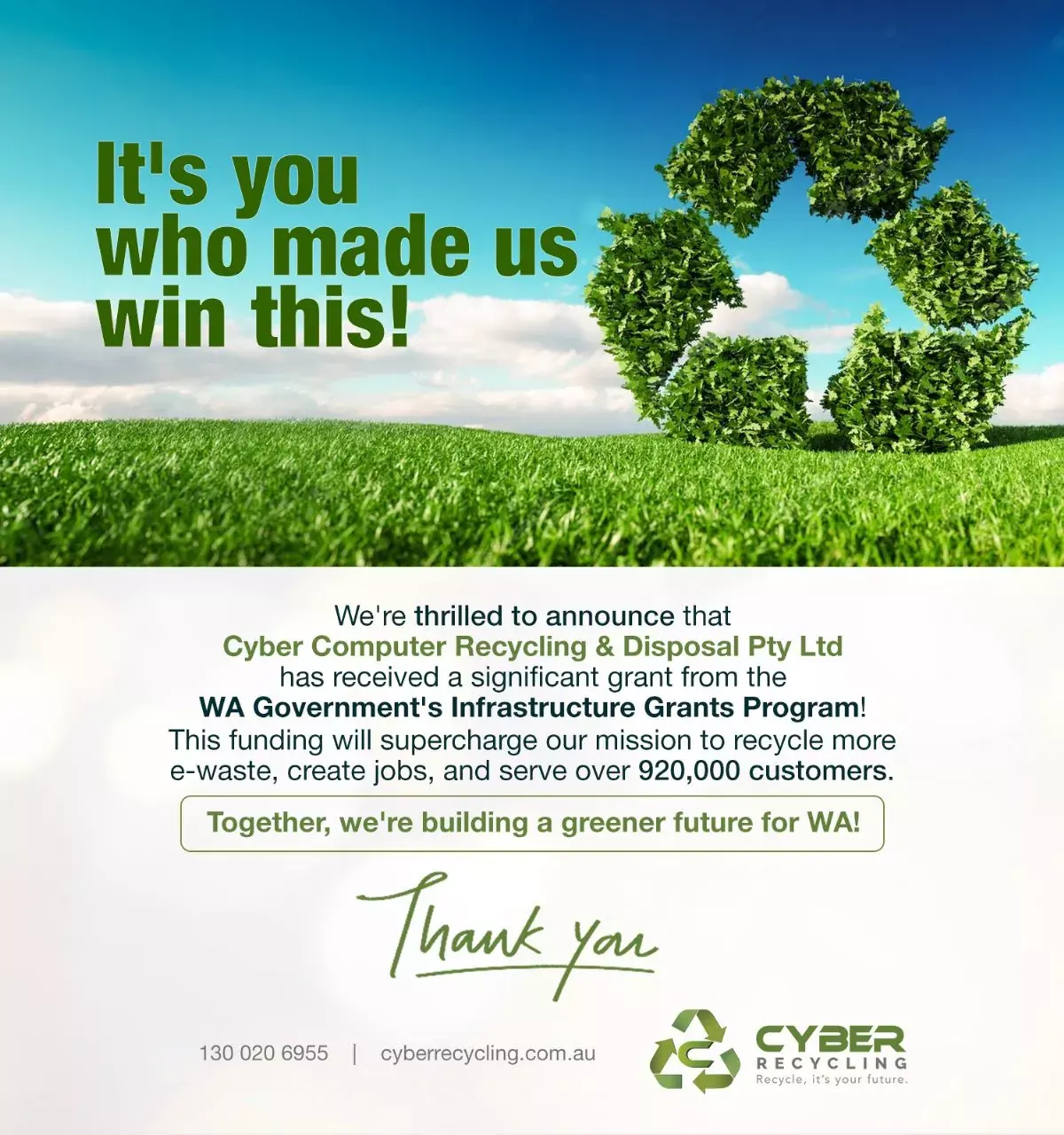The world is drowning in discarded electronics. In 2022, the world produced a record 62 million tonnes of e-waste, averaging 7.8 kilograms per person. If this trend continues, the total could reach 82 million tonnes by 2030. These figures highlight the urgent need to shift focus from constant production to responsible recycling of electronics.
Much of this waste contains hazardous substances and valuable materials in the same mix. Poor e-waste disposal practices can pollute soil and water, damage health and safety, and even cause fires. In contrast, effective e-waste recycling and computer recycling recover precious resources and keep toxins out of the environment. This is why controlling the e-waste problem is urgent worldwide, and why initiatives like safe electrical test tag inspections and certified recyclers are crucial.
Australia faces this challenge head-on. A recent federal review estimates Australia produces about 583,000 tonnes of e-waste per year, which is roughly 22.4 kg per person, and is nearly three times the global per-capita average. As a way of tackling this, Western Australia is strengthening its laws. From 2024, WA has banned putting industrial e-waste in landfills to force more recycling. The state has committed over $10 million in grants to improve e-waste collection, storage, and recycling capacity. Residents are encouraged to reuse working devices or take broken ones to council drop-off points and licensed recyclers. When you put it all together, these steps aim to recover valuable materials and protect people from hazards.
WA Waste Authority 2025–26 Business Plan
In June 2025, the WA Waste Authority approved its Business Plan and Budget for the 2025–26 period. This blueprint guides waste reduction efforts in WA. It remains aligned with the current Waste Strategy but also begins to tackle priorities from the upcoming Beyond WAste 2030 plan. By approving this plan, the Authority set the funding and actions needed for the next year of waste programs. It now goes to the WA Minister for final approval, after already getting in-principle support back in April.
Initiatives in the Draft WA Waste Strategy
During the meeting, the Waste Authority explored ways to implement new priorities outlined in the draft Beyond Waste 2030 strategy. Several proposals were shared, with potential to influence the future of e-waste recycling in the country.
-
- FOGO (Food and Garden Organics)
Expanding FOGO recycling is a top goal. Converting kitchen scraps and garden waste into compost keeps them out of landfills and helps meet resource-recovery targets. The Authority agreed that more investment is needed to improve FOGO quality by reducing contamination, supporting markets for compost, and handling growing volumes of organic waste.
-
- Battery Recycling
Batteries are now a priority waste stream due to their rapid increase, fire risk, and valuable metals. The Authority noted that new infrastructure and programs must be funded to collect and process batteries, as well as solar panels, to meet the State’s targets. New South Wales recently passed a law in 2025 to regulate battery stewardship at a national level. WA members are exploring whether a similar mandatory scheme should be adopted here, to make sure batteries are recycled rather than ending up in landfill or causing fires.
-
- Solar Panel Recycling
With no national scheme yet for PV panels, WA plans to investigate how many solar panels will retire soon. This includes studying their future waste volumes to guarantee better infrastructure planning and solar panel recycling. A pilot project may follow, testing the collection and reuse of panels from homes and solar farms.
-
- Container Deposit Scheme
The Authority examined the success of WA’s container deposit program, which has seen more than 4.3 billion containers returned for recycling since its launch in 2020. The recovery rate has risen from 34 percent before the scheme to over 65 percent by 2023–24. The program has also generated $15.9 million for charities and community groups, and created nearly 900 jobs, for 7% Indigenous workers and 13% with disability. The WA government plans to extend the scheme to include wine and spirit bottles, a move expected to further increase recycling rates.
What’s Next for WA’s Waste Strategy Rollout
The Waste Authority confirmed its 2026 meeting calendar and reminded stakeholders that the next session will be held on 15 October 2025. It also urged both citizens and businesses to remain actively involved. For the average West Australian, it is the sign that now is the time to get serious about recycling as well as the safe disposal of all waste streams, including e-waste. Households and businesses should check whether their electronics, batteries, and other items can be returned to recycling. Many councils and centers across Perth already accept e-waste recycling and offer free drop-off. Cyber Recycling even provides free e-waste collection in Perth.
How You Can Support WA’s E-Waste Goals
-
- Recycle Electronics Properly
Don’t toss old gadgets in the trash. Take e-waste to a certified recycler such as Cyber Recycling to recycle computer waste and other electronics responsibly.
-
- Use Test-and-Tag
For donated or repurposed electrical items, ensure they have a current electrical test tag certification. Cyber Recycling offers test-and-tag inspections on-site to keep equipment safe and compliant
-
- Stay Informed
Stay informed about WA’s waste policy updates, as upcoming Waste Authority meetings will influence programs that impact the community. By taking part in and supporting these initiatives, residents can contribute to meeting the Authority’s goals and protecting the environment from the rising e-waste problem.
Strategy to Service
WA’s new waste strategy goals align perfectly with computer recycling and e-waste firm Cyber Recycling’s services and goals. We promote 100% compliance with high industry standards and strive to make sure 0% of E-Waste goes to landfill when clients use our services. We also partner with businesses and government to safely dismantle and recycle electronics on-site or at our secure Perth facility.
Cyber Recycling offers specialized test and tag services for IT equipment, ensuring that any computers, servers, or cables are electrically safe to reuse or recycle. While also securely wiping data to military-grade standards, so information never leaks. We recycle old computers, phones, batteries, and even solar panels. By recovering metals during recycling of computer waste, we always aim to recover more value and resources from waste, as WA’s strategy calls for. Our free pick-up in Perth means households can easily dispose of e-waste without any landfill worry.
As Western Australia starts focusing more on sustainable waste management, the outcomes of the Waste Authority’s latest meetings highlight a clear direction. These efforts are urgent responses to a global crisis that affects our health, environment, and future resource security.
Through proper e waste disposal, routine test and tag checks, or choosing trusted providers like Cyber Recycling for e waste collection in Perth, individuals and businesses alike play a crucial role in turning the policy into success. By staying informed and taking small, responsible steps, we can all contribute to a more circular, less wasteful world.


